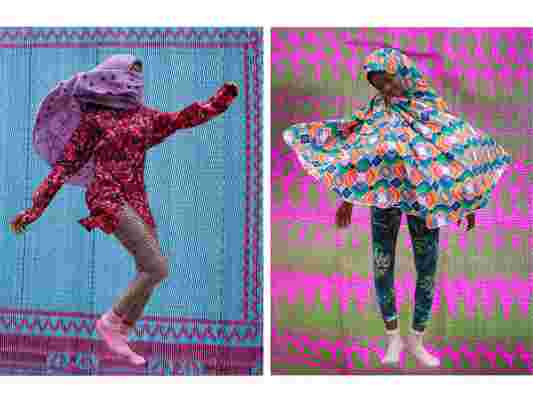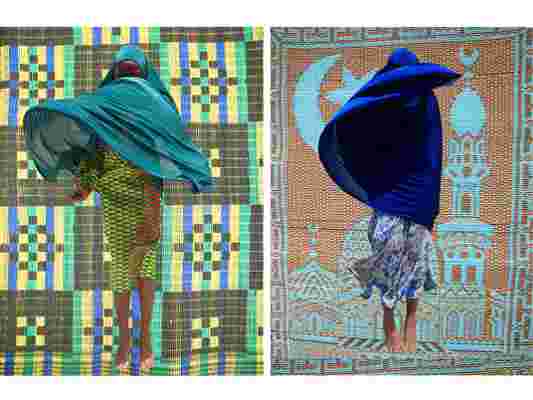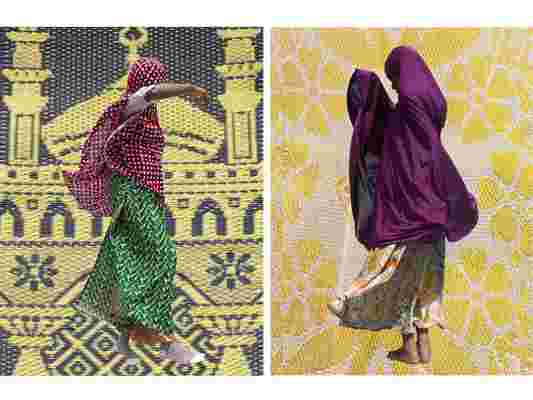


Long before the seventh-century Quranic edict that female believers “not display their beauty,” women across the world—among them, Jews, Christians and Hindus—wore veils to indicate religious devotion and privileged social status. Today the practice is politically fraught: Several Western European countries have instituted “burqa bans,” which prohibit face coverings, while in Iran the hijab is mandated by law.
For Muslim women in Lagos, Nigeria, however, a veil is not only a sign of faith, but a fashion statement. “In the West I think we’ve really developed a finite, limited viehen the practice is much more complex,” says Medina Dugger, whose digital collage series Enshroud celebrates the veil’s creative possibilities. The Texas-born photographer first visited Africa’s largest metropolis in 2011 and found the fast- growing city’s hectic pace and abundant creativity so appealing she decided to stay. Lagosians’ aesthetic originality serves as a refreshing counterexample to the globalization of fashion, Dugger says. It’s also a reminder that the Islamic world is far from monolithic—and just because a woman covers her head, it doesn’t mean she’s sacrificed her right to self-expression.
